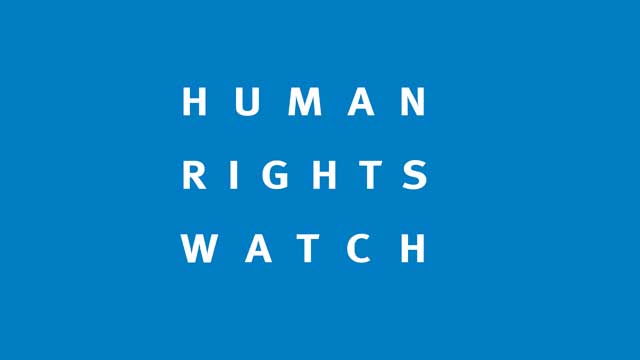Human Rights Watch said on Monday that opposition groups were reporting an escalation of repression by Bangladesh authorities and attacks by ruling party supporters as the country started preparing for national elections in 2023 or early 2014.
It said that Bangladesh authorities should respect the rule of law and protect political opposition supporters’ rights to freedom of association and peaceful assembly.
‘Prime minister Sheikh Hasina has repeatedly said that Bangladesh is a mature democracy capable of conducting elections and a peaceful transition of power, but instead previous polls have been marked by violence, attacks on the opposition, and voter intimidation,’ said Meenakshi Ganguly, South Asia director at Human Rights Watch.
‘These recent cases of political attacks and arrests set an ominous tone for the upcoming parliamentary elections.’
At least four people have reportedly died and hundreds have been injured in clashes between police, supporters of the opposition Bangladesh Nationalist Party, and Awami League supporters, since August 22, 2022.
The clashes occurred during programmes organised by the opposition in protest against hikes in the prices of fuel and other commodities.
HRW said that there have been concerning reports of the killing of BNP activists during other recent clashes.
It added that mass arrests and police raids of opposition party members’ homes raise serious concerns about violence and intimidation ahead of the upcoming parliamentary elections.
Following a clash on September 21 in which Shahidul Islam Shaon, an activist with the BNP youth wing, was killed, police filed two cases naming 365 BNP leaders and activists as allegedly responsible for crimes, as well as 1,400 as yet unidentified.
Police often add people to existing cases as one of those previously unidentified.
According to BNP leaders, at least 20,000 cases have been filed against its supporters, in many cases with the accused unnamed.
The use of criminal complaints against large numbers of ‘unknown’ people is a common abusive practice in Bangladesh, allowing the police to intimidate and threaten virtually anyone with arrest, to repeatedly re-arrest detainees even though they are not the named accused in the cases, and to thwart bail requests, HRW observed.
The law enforcement officers have used these open cases as warrants to raid the homes of political opposition members in what appears to be overt political harassment and intimidation, said the rights group.
It referred to a viral video in September, which saw a leader of the Jubo League, the ruling party’s youth league, reportedly threatening that if ruling party supporters were unable to quash the BNP protests, then ‘we will start the raids’.
‘Bangladesh law enforcement are under increased scrutiny following US human rights sanctions and with parliamentary elections on the horizon,’ said HRW South Asia director Ganguly.
‘Diplomats in Bangladesh should raise concerns publicly and privately that such repression threatens the conditions for a free and fair election,’ she added.





